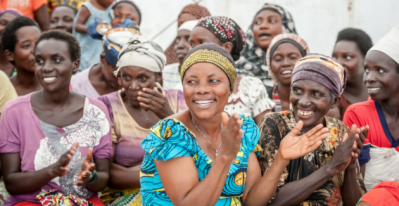At times of conflict women’s voices are too often lost in the fray. Yet those voices are critical to negotiating lasting peace and security. The Australian government well understands this, and has committed to ensuring that a gender perspective is incorporated into all areas of Australia’s peace and security policymaking and operations. Indeed some leading researchers argue Australia is a global leader in international efforts to incorporate gender considerations into peace and security policies. However they warn there are “blind spots” which must be addressed.

Last week, as part of our Women Peace and Security #WPS series, BroadAgenda examined what’s required to put women at the centre of humanitarian efforts. Here we look at the role of Pacific women in WPS and how best they can raise their voice.
 Originally recorded for presentation at the 2017 ACFID National Conference, this video features Sharon Bhagwan-Rolls, Executive Producer – Director femLINKpacific, discussing women, peace and security in the Pacific.
Originally recorded for presentation at the 2017 ACFID National Conference, this video features Sharon Bhagwan-Rolls, Executive Producer – Director femLINKpacific, discussing women, peace and security in the Pacific.
Sharon outlines the work of femLINK, framed around UNSCR1325 and centred on amplifying Pacific women’s voices, increasing women’s participation in peace and security, and localising the women, peace and security agenda in Fiji as well as with partners in Bougainville, Solomon Islands and Tonga. Sharon also raises the need for a human security approach, which recognises the important intersections between peace and security and development and humanitarian responses.
Sharon also covers the important role of women’s movements in building peace in Fiji during times of conflict and extreme violence – “you can’t talk about women, peace and security or women’s human security without that movement”. She goes on to discuss how a unified women, peace and security women’s movement came together in the Pacific and the important role this movement has played in bringing pacific women’s voices to the global stage.
This video was originally posted on the Australian WPS Coalition website on 22nd Nov 2017




